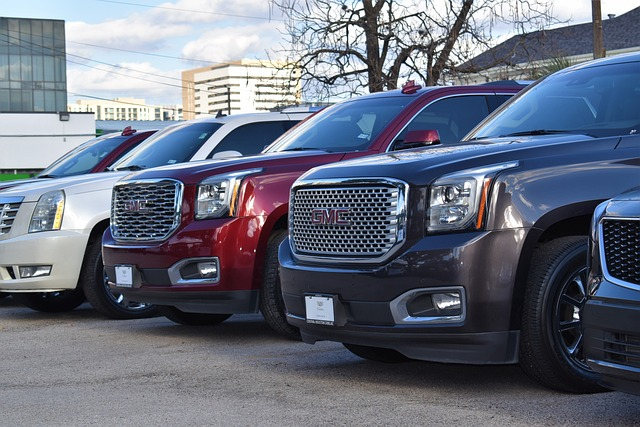Car dealerships are a large-ticket business. They process significant transactions frequently, and the accounting department needs to keep up.
Dealerships have significant discretion in selecting inventory accounting methods. Different categories of inventoried items (new, used, parts, and accessories) often require unique methods to reflect income.
Efficient processes reduce the risk of manual data entry errors. They also make it easier to meet compliance requirements.
Payroll
Keeping track of all the money coming in and going out at your dealership takes time. And when your HR team is short-staffed, the process becomes even more complicated. This is why finding efficiencies in your payroll management tools is important. Streamlining the process can save your HR team many headaches and reduce the chances of errors.
Consider integrating your DMS with your payroll tool to simplify your work and reduce errors. It will enable seamless communication between the systems, eliminating the need for manual data entry. Filing taxes with a complete record of your business’s revenue throughout the year is also easier.
Another way to improve your dealership’s efficiency is by rethinking the compensation model for sales associates. Younger generations are less interested in commission structures and want pay stability, benefits, and a work-life balance. Changes can significantly affect the retention of talented individuals.
The most critical element in managing your dealership is monitoring cash flow. To do this, your dealership needs tight inventory control processes to manage tied-up and available working capital. Tight controls will help avoid costly inventory write-downs and deferred income tax liabilities. Efficient car dealership accounting practices can also allow you to use manufacturer-approved hedging strategies like LIFO.
Inventory Management
The inventory management process is not the flashiest part of running a dealership, but it’s vital to keeping the company running. Without rock-solid accounting, a dealership will run into problems like credit issues with vendors or even a loss of vendor trust and, thus, a slowdown in parts supply. It can impact the customer experience and create a chain reaction that hurts everyone, from sales to service.
A dealership can control its inventory by regularly analyzing core and non-core vehicles. It can help determine what to sell and allow it to move old inventory quickly to prevent losing money tied up in the vehicles. Additionally, knowing the market and understanding how long vehicles stay on the lot can help a dealership set pricing parameters that work for its specific region. By staying attuned to the demand for used cars in Noblesville, the dealership can optimize its inventory turnover and capitalize on market trends.
Similarly, a dealership must monitor its genuine parts account with the manufacturer. The open parts account should be reconciled each month to reflect all monthly financial statement activity accurately. A system automatically records part receipts; sales will make this process less labor-intensive.
Reconciliation can also catch fraud. It’s common for employees to pocket cash or change parts orders, so the reconciliation process can help identify any suspicious transactions that need further investigation. It is why many dealerships hire third parties or dedicated employees to handle the reconciliation process and prevent tampering with other staff members.
Financial Statements
Accurate and up-to-date financial statements are a must for any business. And regarding car dealerships, these statements are vital to the company’s success. Rock-solid accounting keeps everything moving, from identifying operational trends to tracking past-due invoices, and enables the dealership to take on new projects, growth, and change.
Apart from the income statement that illustrates the dealership’s inflow and outflow of funds, a car dealer must regularly examine and analyze their balance sheet. This report gives a clear picture of the car dealership’s assets (what they own) and liabilities (what they owe) at a specific time, enabling the owner and management team to evaluate the dealership’s financial well-being and prospects.
Keeping an eye on inventory aging reports is essential, too. Reviewing the balance sheet also allows the dealership to see if it carries too much new inventory, thus paying higher financing costs than necessary.
Lastly, reconciliation can help a dealership catch any fraudulent activity that may be taking place in the shop.
Reconciliation
Car dealerships are a significant industry where substantial money flows in and out of the companies. A well-oiled automotive accounting department is crucial to a successful dealer. Monthly reconciliations help ensure that the numbers add up and the statements are accurate. It also helps catch any fraud, whether as small as an employee inputting a few incorrect numbers or as large as a consistent, almost undetectable theft.
When a dealer experiences severe financial distress or bankruptcy filing, it can affect the OEM’s ability to meet its contractual and performance obligations. Those obligations may include paying sales incentives, holding back amounts, or floor plan assistance. In the case of bankruptcy, addressing these payments early can reduce the likelihood that they will later be challenged as voidable preferences.
Reconciliation is essential for parts and service departments, which are typically a more prominent source of dealership profits than new-vehicle or used-vehicle departments. For example, the number of service customers in a month can determine whether or not the dealership can afford to buy parts from its manufacturer. If the open parts account balance is not reconciled regularly, the car dealership could overpay its manufacturer for the parts it buys and sells. It also risks losing its manufacturer-sponsored rebates and discounts, which are not refundable or transferable.
